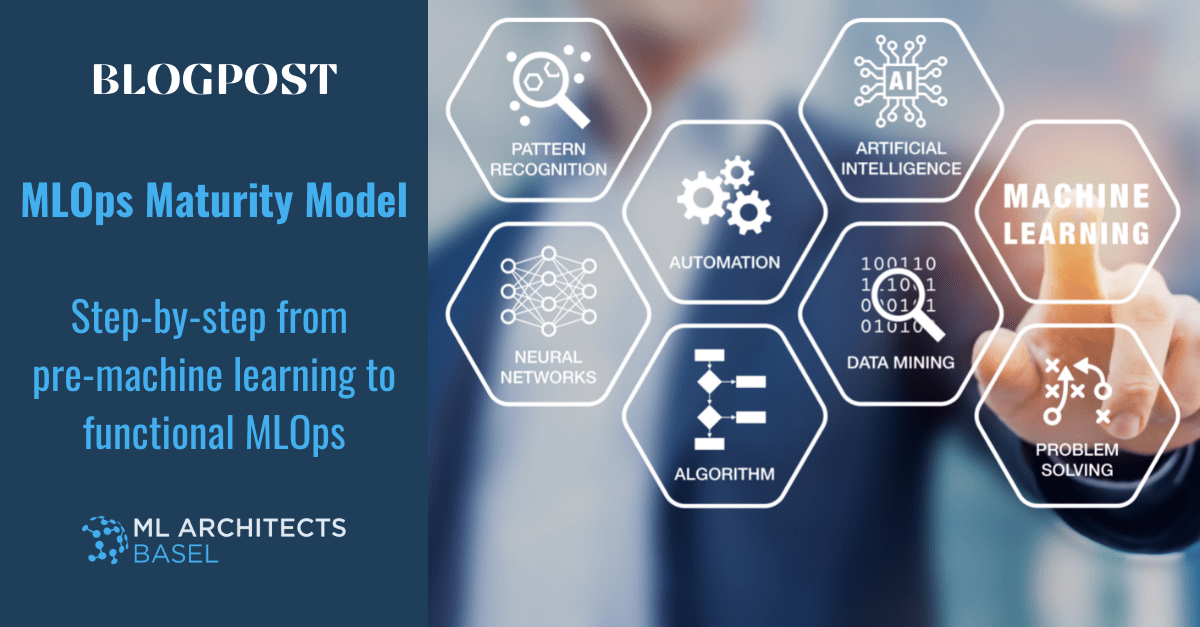In this blog post, we'll introduce you to the concepts Testing and QA for Agentic Systems.
Blog & News
Welcome to our journal. Here you can find the latest company news and blog posts.

Read More
Introduction to AI Engineering
In this blog post, we'll introduce you to the concepts of AI Engineering.

Read More
This article explores the implementation of Large Language Models (LLMs) in business, emphasizing LLMOps, MLOps, and Site Reliability Engineering. It discusses options like using existing LLM services versus self-hosting and methods including Out-of-the-Box, Fine-Tuning, and Retrieval-Augmented Generation (RAG). The article addresses critical operational aspects such as continuous integration, scalable infrastructure, monitoring systems, and user onboarding.

Read More
With the MLOps landscape rapidly expanding and evolving, making sense of the various offerings can be incredibly difficult without the right expertise. How do different end-to-end MLOps platforms compare? Which parts of the digital highway do they actually cover? In this blog post we present our proven approach to Data and ML tooling evaluation.

Read More
Machine Learning Architects Basel (MLAB) launches a new webinar for The Digital Highway for End-to-End Machine Learning & Effective MLOps, where we will present our blueprint for a digital highway for ML systems to illustrate how organizations can generate sustainable value by building and running reliable machine learning solutions.

Read More
As organizations continue to rely on data-driven decision-making, the reliability and performance of ML models become more and more critical. That's why we are exploring the essential aspects of achieving reliable and scalable machine learning deployments through Site Reliability Engineering (SRE) practices and continuous improvement of ML model delivery.

Read More
Observability for MLOps
In this blog post we describe the concepts of monitoring and observability and explain how they can be applied to machine learning operations. We aim to give answers to questions such as "Why do I need observability?", "What are some of the unique issues for observability imposed by data and model pipelines?", and "How do I start addressing these challenges?".

Read More
Curix, a NextGen resilience AIOps solution proudly announces their strategic partnership with Swiss Digital Network (SND), Digital Architects Zurich (DAZ) and Machine Learning Architects Basel (MLAB), bringing together the powerful AI-based immune system for IT CuriX, with the in-depth method and integration knowledge of Swiss Digital Network. Jointly we will enable AI based big data intelligence and cloud transformations....

Read More
It sounds simple but can’t be stressed enough: a project at the intersection of machine learning and healthcare won’t be a success if healthcare professionals are not involved from the very beginning. While it is easy to define ML use cases based on a superficial understanding of the field, their clinical relevance can be judged best by physicians and domain experts. In this blog post, we outline why it is important to closely work with domain experts when developing an ML solution for healthcare and which role MLOps plays.

Read More
The digitalization of the healthcare sector turned out to be a double-edged sword. On the one hand, it brought us impressive advances in medical imaging and opened the door to effective remote health monitoring. On the other hand, in some cases, instead of improving healthcare provision, digitalization has led to a significant productivity drain. In this blog post, we highlight why and how healthcare organizations can benefit from current advances in machine learning.

Read More
Effective MLOps Maturity Model
The use of Machine Learning (ML) and its operationalization through the Machine Learning Operations (MLOps) paradigm bring a lot of benefits. Nevertheless, realizing the full potential of AI is challenging and every organization is at a different stage in the process. We devopled a model including four levels from pre-machine learning to functional MLOps.

Read More
Effective MLOps in Action
Effective MLOps is the concept we preach at ML Architects Basel to democratize MLOps and make it accessible to non-high-tech companies and businesses.

Read More
Effective MLOps: Scope & Framework
It may not be the first time you hear about MLOps. This agile approach, first introduced by Google in 2015 in the famous article “Hidden Technical Debt in Machine Learning”, has since then been at the center of interest of new Machine Learning approaches.

Read More
The Swiss Digital Network (SDN), Switzerland’s first independent and open consulting network, is elated to welcome two new innovative cells in Basel and in Bern. Machine Learning Architects Basel and PhiloSolvis contribute innovative, highly effective and supplemental expertise and value propositions to the network.










